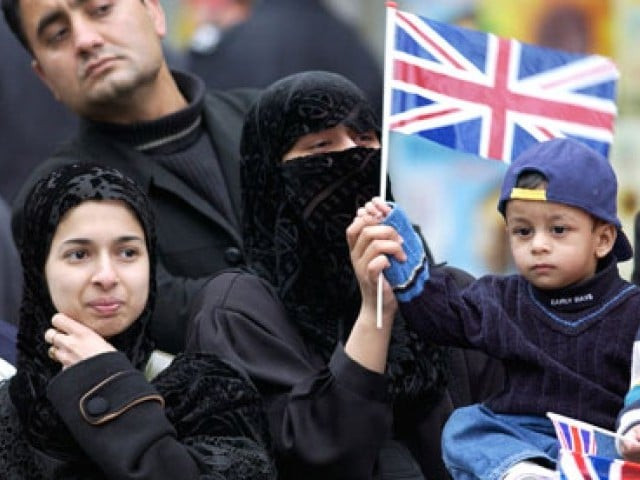No rise in anti-Muslim sentiment in UK after Paris attacks: poll
Poll shows positive change when respondents asked whether London is better or worse off due to its religious diversity

PHOTO: AFP
“[The study] suggests that Isis failed in their stated objective of sowing division between Muslims and non-Muslims in Britain. Far from raising anxiety about diversity and Islam, the Paris attacks strengthened liberal and multicultural views,” said Rob Ford, one of the researchers who conducted the survey.
Muslim woman doused in alcohol in UK
The poll, which was conducted on 17 and 18 November, asked the same questions both before and after the Paris attacks on 13 November. When asked whether ‘Muslims have a lot to offer British culture’ before the Paris attacks, 33% agreed, whereas 35% disagreed. After the Paris attacks, there was an additional 2% who agreed with the statement although the percentage of those who disagreed remained the same.
There was also an increase in the percentage of those who responded positively to the statement ‘Muslims in Britain have respect for the way of life of others’. Before Paris, 23% of respondents agreed with that statement, compared to a far larger 53% who disagreed. After the Paris attacks, the positive proportion increased to 27%, whereas the proportion disagreeing declined to 51%.
The research also showed the greatest positive change in the two survey findings when respondents were asked whether they felt London was better or worse off due to its ethnic and religious diversity. Before the Paris attacks, 40% felt London was better off for its diversity and the number increased to 43% after the attacks.
'Gay boy' living opposite a mosque in London tackles Islamophobia in viral post
In the same way, 32% thought the capital was worse off but after the attacks, the number dropped to 24%.
Maria Sobolewska, another researcher from the University of Manchester said that the survey findings showed that Paris attacks did not deepen divisions, “While tolerance is clearly not a universal value in Britain, it is a resilient one for those who hold it. The Paris attacks did not deepen divisions among our respondents, as pessimists feared. Instead they encouraged a stronger expression of the inclusive tolerance the terrorists threaten and reject.”
The respondents were drawn from the whole of Great Britain. 1,707 people were surveyed in the first round of the study between 10 and 12 November, and 1,621 were surveyed in the second round on 17 and 18 November.
This article originally appeared on Guardian



















COMMENTS
Comments are moderated and generally will be posted if they are on-topic and not abusive.
For more information, please see our Comments FAQ